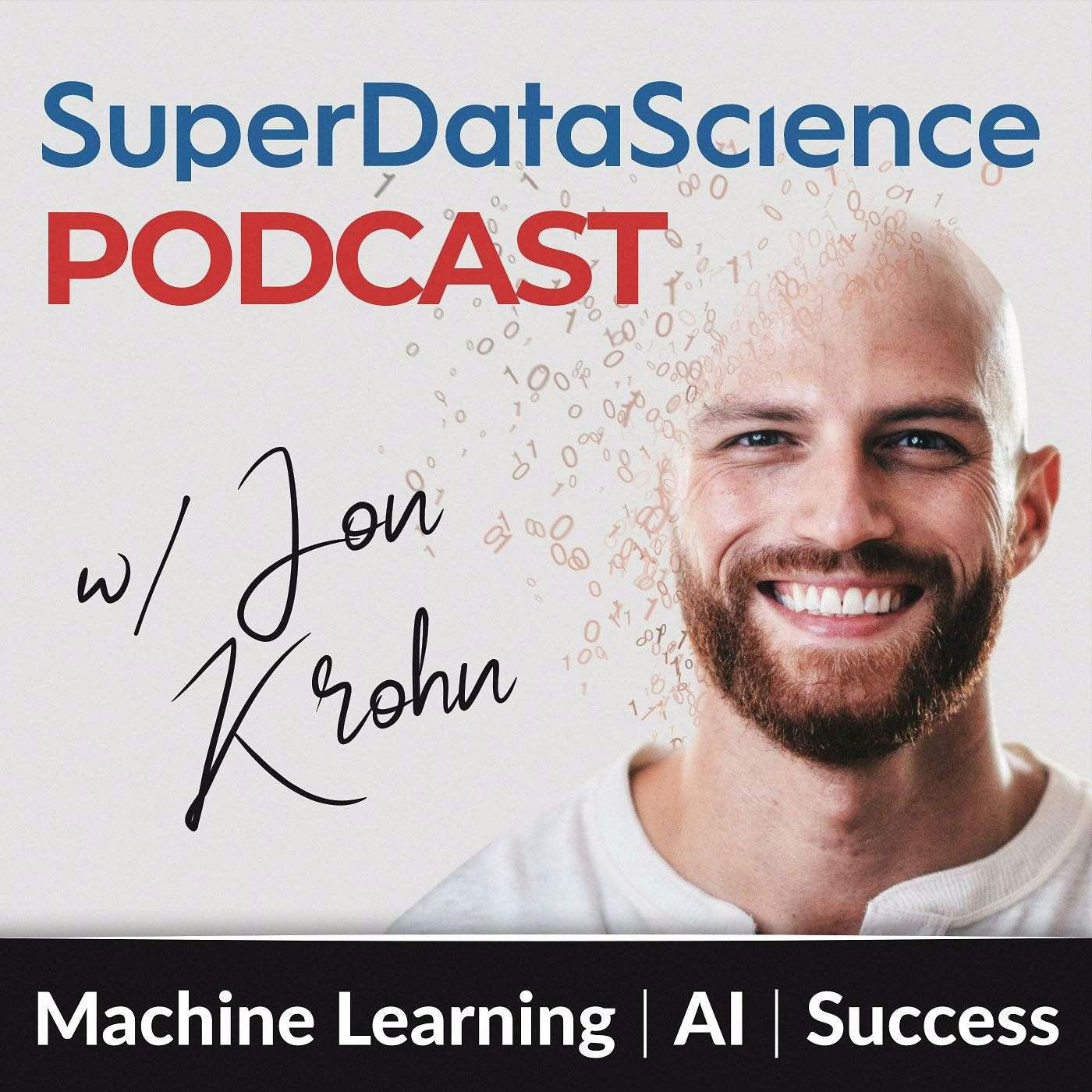
843: Safe, Fast and Efficient AI, with Protopia’s Dr. Eiman Ebrahimi

Super Data Science: ML & AI Podcast with Jon Krohn
Deep Dive
Why is data security crucial for the success of AI projects in enterprises?
Data security is essential because without seamless security solutions, many valuable AI use cases never make it to production. Enterprises face challenges in deploying AI at scale due to the trade-offs between cost and security, often resulting in high costs for private infrastructure that can be prohibitive for ROI.
What is the main challenge with homomorphic encryption in AI systems?
Homomorphic encryption allows computation on encrypted data but significantly increases latency, making it prohibitively slow for complex deep neural network operations. This latency penalty makes it impractical for many AI tasks.
How does Protopia's Stained Glass Transform address data security in AI systems?
Stained Glass Transform introduces stochasticity to data representations, making them unintelligible if intercepted while still being usable by the target AI model. It avoids the latency issues of homomorphic encryption by curating stochasticity specifically for machine learning tasks.
What is the significance of multi-tenancy in AI systems?
Multi-tenancy allows multiple users to share computing infrastructure, making it cost-effective but introducing security vulnerabilities. Even in private systems, multi-tenancy within an organization can expose data across different departments, creating security challenges.
How does Protopia aim to balance security and performance in AI systems?
Protopia focuses on minimizing data exposure by transforming data into randomized representations that are still usable by AI models. This approach reduces attack surfaces without significantly impacting system latency, allowing for secure and efficient AI operations.
What is the concept of 'proof-of-concept purgatory' in AI projects?
Proof-of-concept purgatory refers to the stage where promising AI projects get stuck after demonstrating value in a POC but fail to scale into production due to challenges like security, cost, and infrastructure complexity.
How does Protopia's approach differ from traditional encryption methods?
Traditional encryption relies on keys to secure data, while Protopia's Stained Glass Transform introduces stochasticity to data representations. This allows AI models to operate on transformed data without needing decryption, reducing latency and improving usability.
What are the emerging trends in AI that will impact data security?
The shift toward agentic AI, where systems operate independently, will require new approaches to data security. Agents interacting with data across multiple locations and systems will need solutions that manage data exposure in a programmatic and secure manner.
Why is the concept of 'protopia' relevant to AI and data security?
Protopia represents the idea of iterative improvement toward a better state, focusing on minimizing data exposure and attack surfaces in AI systems. It contrasts with the unattainable ideal of 'utopia,' where absolute zero data exposure is impossible.
What role does parallelization play in scaling AI systems?
Parallelization strategies, such as data and model parallelism, are crucial for efficiently using large amounts of compute resources to train and deploy AI models. These techniques help reduce power and time costs, especially for large-scale models like LLMs.
Shownotes Transcript
What’s holding your AI projects back from success? Dr. Eiman Ebrahimi, CEO of Protopia AI and former NVIDIA scientist, takes us on a fascinating journey through the challenges of AI data security and enterprise scalability. Learn how to escape "proof of concept purgatory," unlock profitable AI solutions, and tackle the trade-offs between cost, speed, and security. Plus, discover how the philosophy of Alan Watts can inspire innovation and drive meaningful change in the world of AI.
Interested in sponsoring a SuperDataScience Podcast episode? Email [email protected]) for sponsorship information.
In this episode you will learn:
(02:53) Protopia’s role in AI data security and privacy
(11:45) The functionality behind Stained Glass Transform
(22:20) Eiman’s journey from NVIDIA to founding Protopia
(25:37) Challenges enterprises face with ROI on AI projects
(36:40) Multi-tenancy in AI systems
(55:37) Stained Glass Transform’s privacy-preserving capabilities
(01:09:31) Emerging trends in AI
(01:14:55) Alan Watts’ philosophies and their link to entrepreneurship
Additional materials: www.superdatascience.com/843)